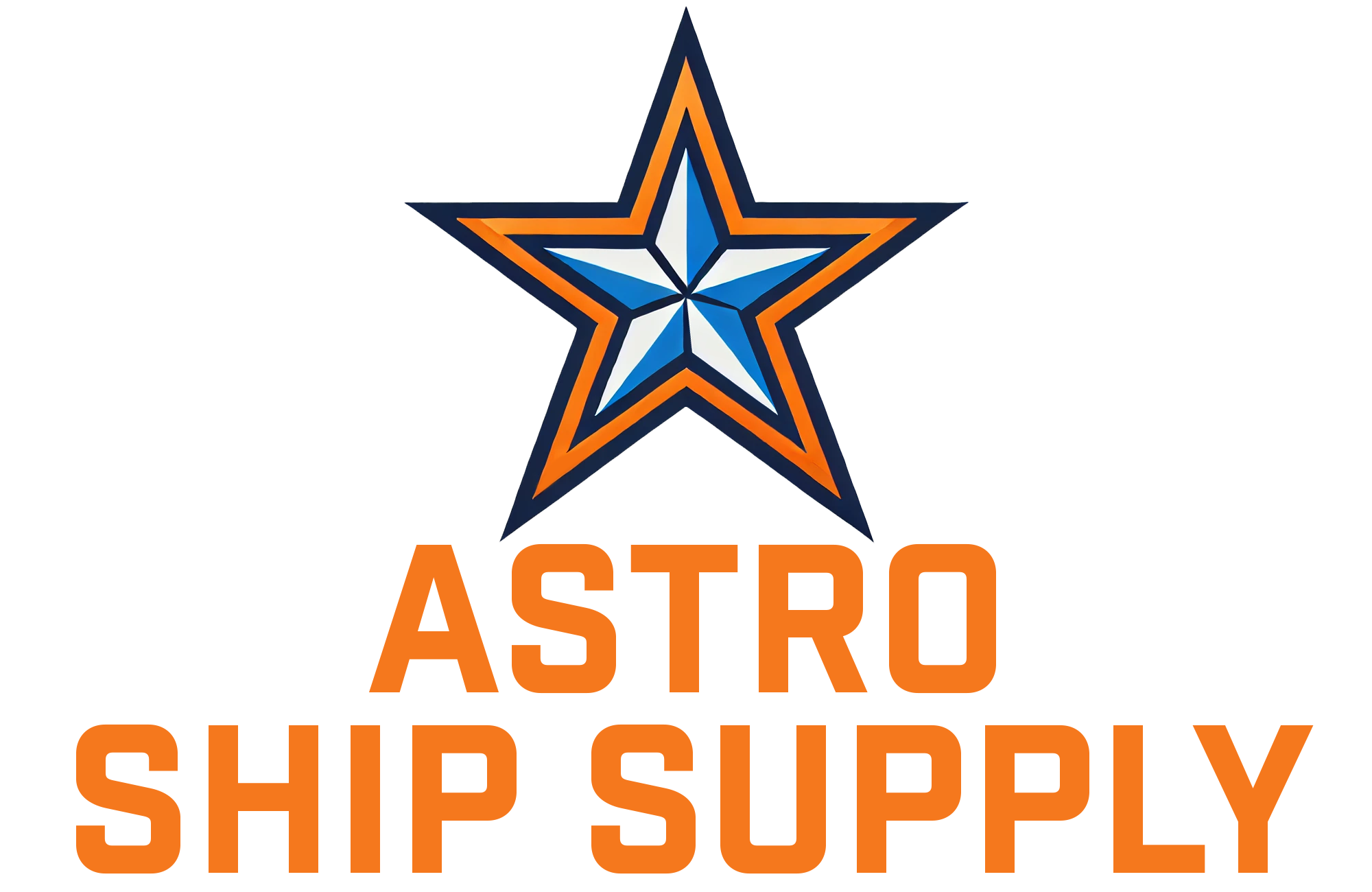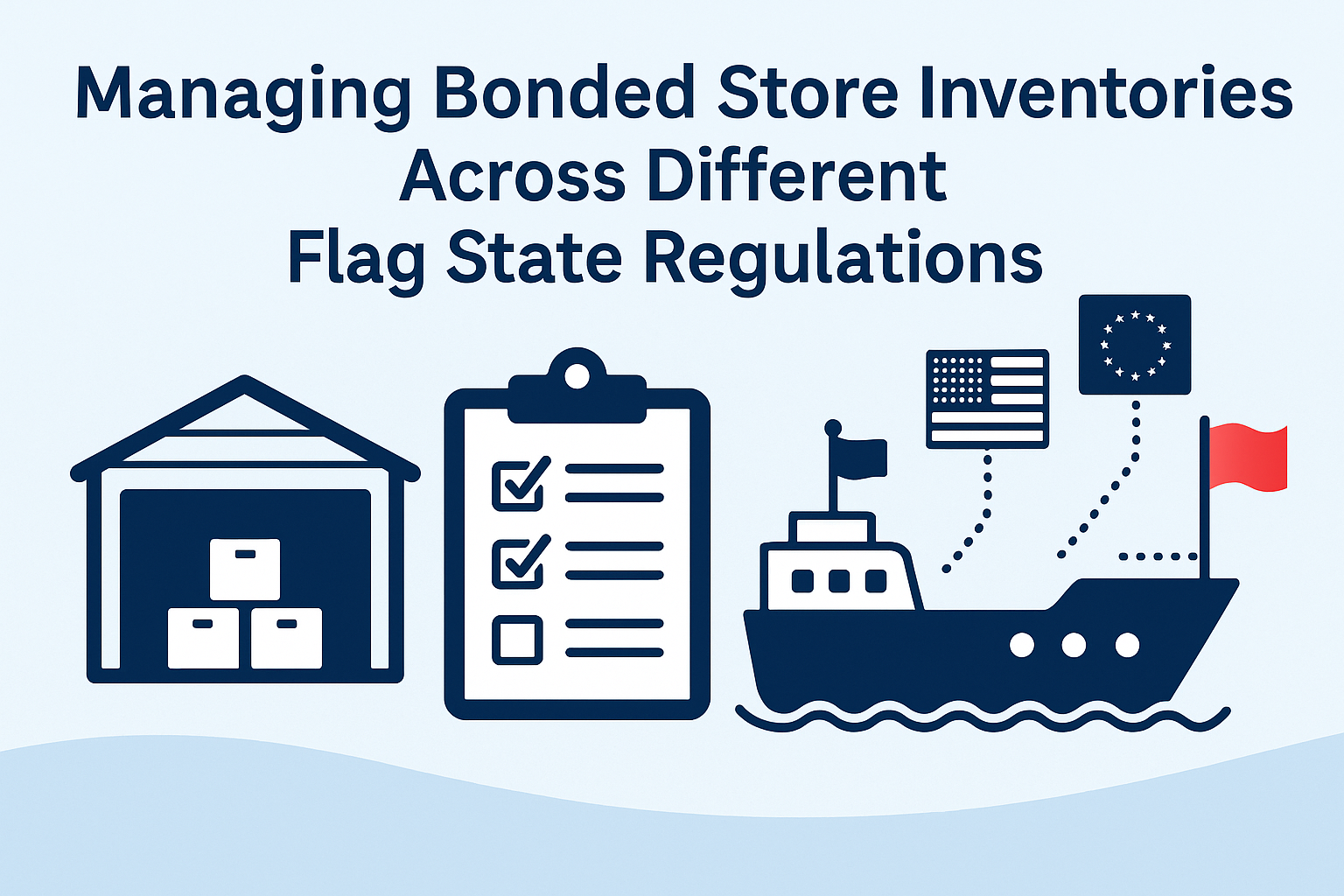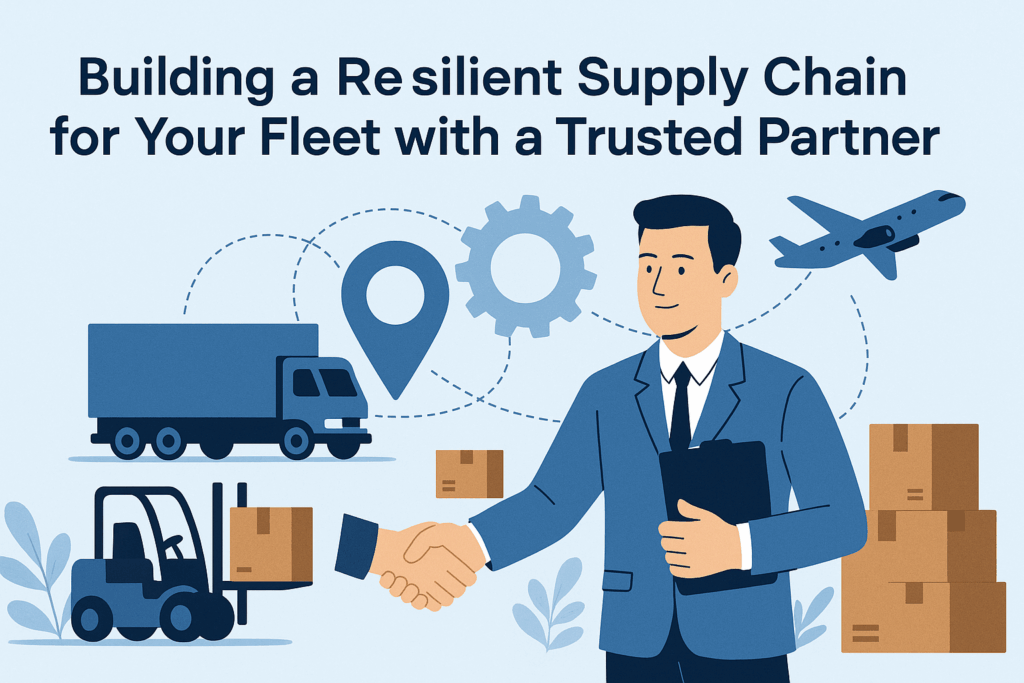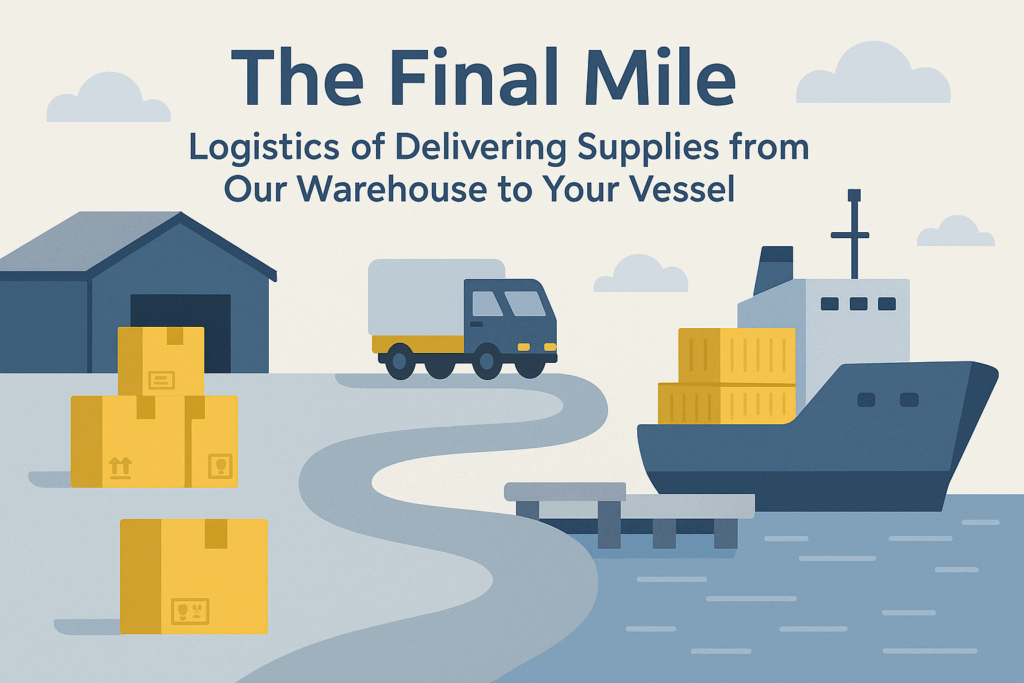For ship owners, operators, and chandlers, ensuring seamless operations means not only providing an optimal selection for the crew and passengers but also meticulously adhering to a patchwork of rules that can differ significantly from one flag state to another. A misstep can lead to hefty fines, delays, or even the seizure of goods. This comprehensive guide delves into the nuances of **managing bonded store inventories across diverse flag state regulations**, offering practical insights, comparative analyses, and actionable strategies to help you navigate this complex landscape with confidence and compliance.
The Core Challenge: Harmonizing Disparate Regulations
The primary hurdle in bonded store management is the sheer diversity of regulations. Each flag state – the country under whose laws a vessel is registered or licensed – establishes its own framework for how bonded goods are handled. These regulations typically cover:
- Types of Goods Allowed: While most bonded stores carry similar categories of items, specific restrictions on certain products (e.g., limits on tobacco quantities or types of alcohol) can vary.
- Inventory Procedures: Requirements for maintaining records, conducting physical inventories, and reporting discrepancies differ. Some flag states demand highly detailed, real-time tracking, while others are more lenient.
- Reporting Frequencies: The regularity with which inventory reports must be submitted to authorities can range from daily to quarterly, depending on the flag state and the vessel’s operational area.
- Customs Declarations: The format and content of customs declarations for bonded goods vary, often requiring specific forms, languages, and supporting documentation.
- Sealing and Security: Rules regarding the sealing of bonded stores to prevent unauthorized access and consumption while in port can be stringent in some jurisdictions.
- Disposal and Waste Management: How unconsumed or expired bonded goods are handled, including destruction or re-export, is also subject to specific flag state rules.
This fragmentation necessitates a robust, adaptable system for **bonded store inventory management** that can accommodate these varied demands without compromising efficiency or compliance.
Comparative Analysis: Key Differences in Flag State Approaches
To illustrate the diversity, let’s consider a comparative analysis of how a few prominent flag states approach bonded store regulations. This is not an exhaustive list, but it highlights common variances:
Panama vs. Liberia: A Focus on Streamlined Processes
Both Panama and Liberia are among the world’s largest flag states, known for their pragmatic and relatively streamlined regulatory environments. They generally adopt an approach that focuses on clear guidelines for inventory maintenance and reporting, often relying on the master’s declaration. However, subtle differences exist:
- Panama: Emphasizes meticulous record-keeping onboard, often requiring a dedicated bonded store logbook. Inspections, while possible, are less frequent for routine calls unless specific issues arise.
- Liberia: Similar to Panama, with a strong emphasis on self-regulation by the vessel. Their framework often provides more flexibility in the specific methods of inventory tracking, as long as accuracy is maintained.
For vessels flying these flags, the key is to ensure consistent and accurate internal record-keeping. Ship chandlers like Astro Ship Supply in the Port of Houston are adept at preparing the necessary documentation that aligns with these requirements, ensuring a smooth transition of goods.
European Union (EU) Flag States: Enhanced Scrutiny and Digitalization
EU flag states, such as Germany, Denmark, or Greece, often operate under a more harmonized but generally stricter customs regime due to the EU’s common external border policies. This typically involves:
- Higher Documentation Requirements: More detailed customs declarations and often pre-arrival notifications are common.
- Digital Reporting: Increasing push towards electronic submission of inventory reports and declarations, aiming for greater transparency and efficiency.
- Frequent Inspections: Port state control in EU waters may conduct more frequent and thorough inspections of bonded stores, checking for compliance with EU directives and national regulations.
This environment demands a proactive approach to **bonded store management**, including robust digital inventory systems and a deep understanding of specific national interpretations of EU customs law.
United States (US) Flag State & Ports: Stringent Import/Export Controls
Operating under a US flag or calling at US ports introduces another layer of specific regulations, primarily driven by U.S. Customs and Border Protection (CBP). The US has a highly regulated system for imported goods, including those for bonded stores. Key aspects include:
- Detailed Manifests: Strict requirements for accurate and timely submission of cargo manifests, including bonded store items.
- CBP Oversight: CBP officers have broad authority to inspect and audit bonded store inventories at any time.
- Security Measures: Enhanced security protocols for bonded stores to prevent diversion of goods into the domestic market.
Given these stringent controls, a reliable **ship chandlery partner** with intimate knowledge of US regulations, like Astro Ship Supply, becomes indispensable for vessels operating in the Gulf Coast region. They ensure that all necessary declarations are accurately prepared and submitted, mitigating the risk of penalties.
Practical Scenarios: Case Approaches to Bonded Store Management
Let’s explore some practical scenarios that highlight the importance of adaptability in managing bonded stores:
Case Study 1: The Transatlantic Cruise Liner
A cruise liner regularly travels between various EU ports and the US East Coast, flying a Bahamian flag. This vessel encounters a myriad of regulations:
- Challenge: Harmonizing inventory tracking and customs declarations across EU, US, and Bahamian requirements. The volume and variety of goods in a cruise ship’s bonded store are significantly higher than a cargo vessel.
- Solution: Implement a sophisticated, integrated inventory management system that can generate reports in various formats, catering to different regulatory demands. Partner with local **ship chandlers** in each major port of call (e.g., Astro Ship Supply in Houston for US calls) who can provide up-to-date local customs advice and ensure timely, compliant deliveries. Regular crew training on bonded store procedures specific to each region is also crucial.
Case Study 2: The Oil Tanker in International Waters
An oil tanker, registered under a Marshall Islands flag, operates globally, making infrequent port calls in various countries for bunkering or crew changes.
- Challenge: Maintaining accurate bonded store records over long voyages with minimal port interaction, ensuring compliance with both flag state rules and any specific port country regulations for brief stops. The crew might be small, and dedicated administrative staff for bonded stores is unlikely.
- Solution: Develop simplified, yet comprehensive, onboard logbooks and a clear procedure for recording consumption and new stock. Utilize a **trusted ship supply service** that can deliver goods and necessary documentation efficiently during short port windows, minimizing delays. The focus here shifts to robust internal controls and crew accountability.
Case Study 3: The Offshore Supply Vessel (OSV)
An OSV operates primarily in the Gulf of Mexico, servicing offshore platforms, and is US-flagged. It frequently returns to its home port in Houston.
- Challenge: Strict adherence to US CBP regulations for bonded goods, even for relatively short voyages and frequent port entries. The nature of OSV operations means frequent, often last-minute, supply needs.
- Solution: Establish a direct and ongoing relationship with a local **Houston ship chandler** like Astro Ship Supply. Their proximity and expertise in US customs procedures for bonded stores ensure all deliveries are fully compliant, and documentation is pre-cleared where possible. Implementing a just-in-time inventory system with the chandler can reduce the burden of extensive onboard bonded storage.
Strategies for Effective Bonded Store Inventory Management
To successfully navigate the complexities of **managing bonded store inventories across diverse flag state regulations**, consider these key strategies:
1. Centralized, Adaptable Inventory System
- Digital First: Implement a digital inventory management system. This system should be capable of tracking stock levels in real-time, recording consumption, and generating customized reports to meet various flag state and port authority requirements.
- Flexible Reporting: Ensure the system can export data in different formats (e.g., CSV, PDF) and accommodate varying levels of detail for different regulatory bodies.
2. Deep Understanding of Flag State and Port Regulations
- Stay Updated: Regulations change. Regularly monitor updates from relevant flag states and port authorities. Subscribing to maritime legal alerts or consulting with maritime law experts can be beneficial.
- Local Expertise: For frequently visited ports, leverage the knowledge of local **ship chandlers** and port agents who are intimately familiar with local customs procedures and nuances.
3. Robust Documentation and Record-Keeping
- Accuracy is Key: Every item entering or leaving the bonded store must be meticulously recorded. Discrepancies can lead to significant penalties.
- Standardized Procedures: Develop clear, standardized operating procedures (SOPs) for the crew regarding bonded store management, including receiving, issuing, and disposal of goods.
- Audit Trails: Maintain clear audit trails for all transactions, allowing for easy verification by authorities during inspections.
4. Strategic Partnerships with Ship Chandlers
- Reliability and Compliance: Choose **ship chandlers** who have a proven track record of compliance and a deep understanding of bonded store regulations in their operating regions. A company like Astro Ship Supply, with its commitment to ISO 9001:2015 and US Customs and Border Protection compliance, offers this assurance.
- Timely Deliveries: Ensure your chandler can provide timely deliveries, reducing the need for excessive onboard storage and minimizing the risk of discrepancies during port calls.
5. Crew Training and Awareness
- Regular Briefings: Conduct regular training and briefings for crew members responsible for bonded stores. This should cover company policies, flag state requirements, and port-specific regulations.
- Consequence Awareness: Educate the crew on the severe consequences of non-compliance, including fines, delays, and reputational damage.
The Strategic Advantage of Bonded Store Services
Beyond compliance, effective **bonded store management** offers strategic advantages:
- Cost Savings: By optimizing inventory and minimizing waste, vessels can significantly reduce operational costs. Strategic purchasing through bonded store services allows for bulk discounts on duty-free goods.
- Crew Morale: A well-stocked and diverse bonded store, offering quality products at duty-free prices, contributes positively to crew morale and well-being, especially during long voyages.
- Operational Efficiency: Smooth bonded store operations reduce the likelihood of port delays, allowing vessels to maintain their schedules and minimize idle time.
- Risk Mitigation: Proactive compliance significantly reduces the risk of legal issues, fines, and reputational damage associated with non-adherence to customs regulations.
This is where specialized **ship chandlery services** truly shine. For instance, Astro Ship Supply’s bonded store services are designed to streamline this complex process. Their expertise in navigating various flag state regulations and ensuring compliance with US Customs and Border Protection requirements makes them a valuable partner for vessels operating in the Gulf Coast and beyond. Their commitment to quality and timely delivery ensures that vessels are always well-equipped, contributing to both operational efficiency and crew satisfaction.
Certifications and Compliance: A Mark of Trust
When selecting a **ship chandler** for bonded store services, certifications and compliance are crucial indicators of reliability and expertise. Look for partners who demonstrate adherence to international and national standards. For example, Astro Ship Supply’s commitment to:
- ISO 9001:2015 Quality Management System: Ensures consistent quality and processes in their operations.
- HACCP Food Safety Management: While primarily for provisions, this demonstrates a broader commitment to meticulous handling and quality control, which extends to all supplies.
- International Ship and Port Facility Security (ISPS) Code Compliance: Highlights their dedication to secure supply chain practices, vital for bonded goods.
- U.S. Customs and Border Protection Requirements: Essential for navigating the stringent US regulatory environment for bonded stores.
These certifications are not just badges; they reflect a systemic approach to excellence and compliance, providing peace of mind for vessel operators.
Frequently Asked Questions (FAQ) About Bonded Store Inventory Management
What are bonded stores on a ship?
Bonded stores on a ship refer to a designated area onboard where goods like alcohol, tobacco, perfumes, electronics, and other luxury items are stored. These goods are exempt from customs duties and taxes in the country where they are supplied, provided they are consumed only outside that country’s territorial waters or sold to crew and passengers for consumption onboard. They are typically sealed while the vessel is in port to prevent unauthorized access or sale within the port country.
Why are flag state regulations important for bonded stores?
Flag state regulations are crucial because they dictate the legal framework under which a vessel operates, including how bonded goods are managed. Each flag state has specific rules regarding the types of goods allowed, inventory procedures, reporting requirements, customs declarations, security protocols, and disposal methods. Adhering to these diverse regulations is essential for compliance, avoiding fines, and ensuring smooth port operations.
How can a ship chandler help with bonded store inventory management?
A reputable ship chandler, like Astro Ship Supply, plays a vital role by providing duty-free goods while ensuring compliance with relevant regulations. They handle the complex customs documentation, provide timely and accurate deliveries, and can offer expertise on specific flag state and port requirements. This streamlines the supply chain, reduces the administrative burden on the vessel, and mitigates the risk of non-compliance.
What are the risks of non-compliance with bonded store regulations?
Non-compliance with bonded store regulations can lead to significant penalties, including hefty fines, detention of the vessel, seizure of goods, and even legal action against the ship owner or master. It can also cause severe operational delays, damage the vessel’s reputation, and complicate future port entries. Therefore, meticulous adherence to all regulations is paramount.
Is there a difference in managing bonded stores for cargo vessels vs. cruise liners?
Yes, there are significant differences. Cargo vessels typically have smaller bonded stores focused on crew provisions and basic comfort items, with simpler inventory needs. Cruise liners, conversely, have extensive bonded stores functioning like retail outlets, offering a wider variety and larger quantities of luxury goods for passengers. This necessitates more sophisticated inventory management systems, frequent restocking, and higher levels of security and accountability to handle the greater volume and value of goods, as well as the more complex sales and consumption tracking.
Conclusion: Navigating the Global Maritime Landscape with Confidence
The successful management of **bonded store inventories across diverse flag state regulations** is more than just an administrative task; it’s a critical component of efficient and compliant maritime operations. By understanding the intricacies of various regulatory frameworks, implementing robust inventory systems, and forging strategic partnerships with experienced **ship chandlers** like Astro Ship Supply, vessel operators can transform a potential compliance headache into a seamless, value-adding process.
In a rapidly evolving global maritime landscape, staying informed and adapting quickly are key. Proactive management of bonded stores not only ensures regulatory adherence but also contributes significantly to crew well-being, operational efficiency, and overall financial performance. Make the choice that makes the difference – choose excellence in every delivery.






